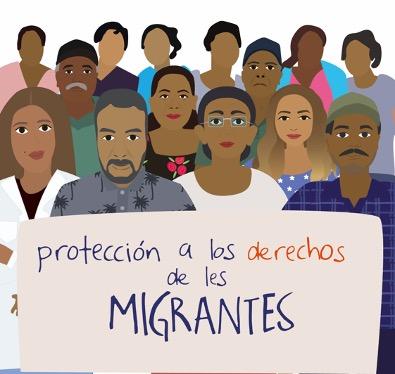October 23, 2023
Deferred Action: New tool for migrant and immigrant workers Some key points to understand what it is about

Due to various factors in the US employment system, migrant and immigrant workers are more vulnerable to violations of their employment rights. The possibility of being expelled from the country is a constant threat because it puts at risk what they have built and the resources that their families have in their place of origin, among many other things.
If you have a work visa linked to an employer, such as an H2 or TN visa, this is also problematic, as permission to stay in the United States depends on your employer, which can make it more difficult to make the decision to report labor abuses. This is summed up in the phrase “if I complain, they are going to deport me” or “if I complain, they are not going to bring me anymore”, and it is a situation that abusive employers constantly take advantage of.
In January 2023, the United States government announced protection from deportation through deferred action for working people. Here are some details:
The tool: Deferred Action
It is a form of immigration relief that consists of the commitment, by the United States government, not to deport the worker while there is an ongoing investigation for denouncing a violation of labor rights.
Deferred action lasts for four years, but can always be renewed if the agency decides the investigation should continue.
How does it work?
There are two main parts:
A worker reports a violation of her labor rights and requests guidance or support from an agency related to labor complaints.
The agency has to investigate the employer and determine that there is indeed a labor dispute. The agency must draft a Declaration of Interest letter or document, that is, a statement that there is an ongoing investigation.
The labor agency must tell the Department of Homeland Security (DHS) that it is investigating the labor dispute and that it needs workers to be protected from deportation so they can help in the investigation.
With the Declaration of Interest, the worker can request Deferred Action and, later, permission to work.
Some of these agencies that handle labor complaints are:
Department of Labor (DOL)
Equal Employment Opportunity Commission (EEOC)
National Labor Relations Board (NLRB)
Occupational Safety and Health Administration (OSHA)
The respective agencies at the state or local level.
This benefits all workers, regardless of their immigration status, who are suffering or who have suffered violations of their labor rights such as receiving threats, or unsafe working conditions, including the lack of protocols to protect themselves from the spread of an infectious disease such as COVID-19.
What gives us hope:
It is safer to report violations without fear. At the same time it is more difficult for employers to intimidate.
Declarations of interest may cover everyone who has worked at a location in a specified period, as DHS describes the workplace and the affected workers so that those who fit that description can individually apply for deferred action.
It's a simpler and more navigable process than other complaints.
Individuals who file Deferred Action may obtain a work permit, valid with any employer for two years.
In some cases, it is renewable.
The challenges:
It is a temporary protection.
There is no guarantee, nor is it an automatic acceptance: it is evaluated on a case-by-case basis.
There are wait times for both steps.
Generally, it does not apply to relatives of the people who denounce.
There is a cost of $410 to apply, although a waiver can be requested, and some states may allocate special resources for this. For example, California.
Working people may need the support of lawyers to apply.
The process must be carried out by people who are currently in the United States. It is not yet for people who have left the country.
DHS does not mention how people who sue in court can benefit.
Worker:
If you want to report, but you are afraid of the possibility of deportation, there are possible paths for you. Take action!
If you have already spoken up and reported, you can continue: the agency you reported to can provide you with a declaration of interest.
If you need support or legal guidance on your labor rights, do not hesitate to contact us.
From Mexico to: 800 590 1773
From the United States to: 1 855 234 9699.
Visit SOL at covid-chat.org
